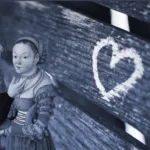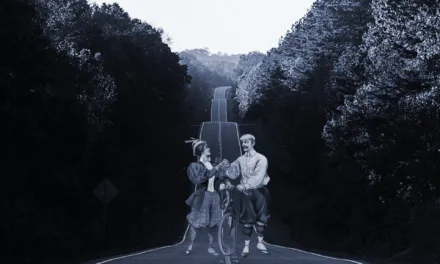
Genre Talk: Exploring the World of Science Fiction
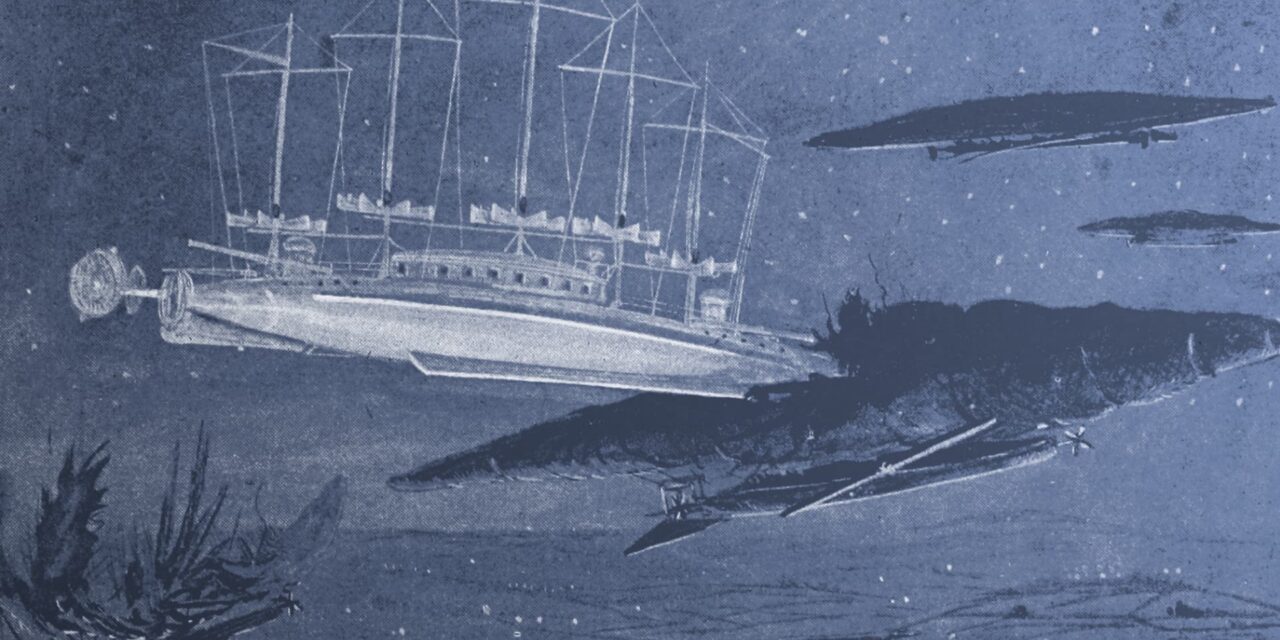
Science fiction (aka SF or sci-fi) is a really versatile genre that covers a variety of topics and themes. It uses futuristic and speculative concepts like science, technology, space exploration, time travel, multiverses, and alien encounters to really dive into the human condition and explore both our past and how our futures might develop.
What is science fiction?
Along with its subgenres, science fiction is all about exploring big ideas and is one of the most socially influential genres in the world. It not only makes readers think about the way society is developing, but it is also a genre that criticises our contemporary world, explores alternate futures that might stray from our current social development, and can even anticipate future scientific and technological advancements.
While an exact definition of science fiction can be difficult to pin down (it shares a lot of crossover with fantasy, also), most definitions share some similarities. Issac Asimov described science fiction as the “branch of literature which deals with the reaction of human beings to changes in science and technology.” Whereas Robert A. Heinlein described it as “realistic speculation about possible future events, based solidly on adequate knowledge of the real world, past and present, and on a thorough understanding of the nature and significance of the scientific method.” Writers like Ursula K. Le Guin, however, believed that science fiction could be used to elevate the human experience and really understand it.
“…the work of people from Zamiatin to Lem has shown that when science fiction uses its limitless range of symbol and metaphor novelistically, with the subject at the center, it can show us who we are, and where we are, and what choices face us, with unsurpassed clarity, and with a great and troubling beauty.”
Ursula K. Le Guin
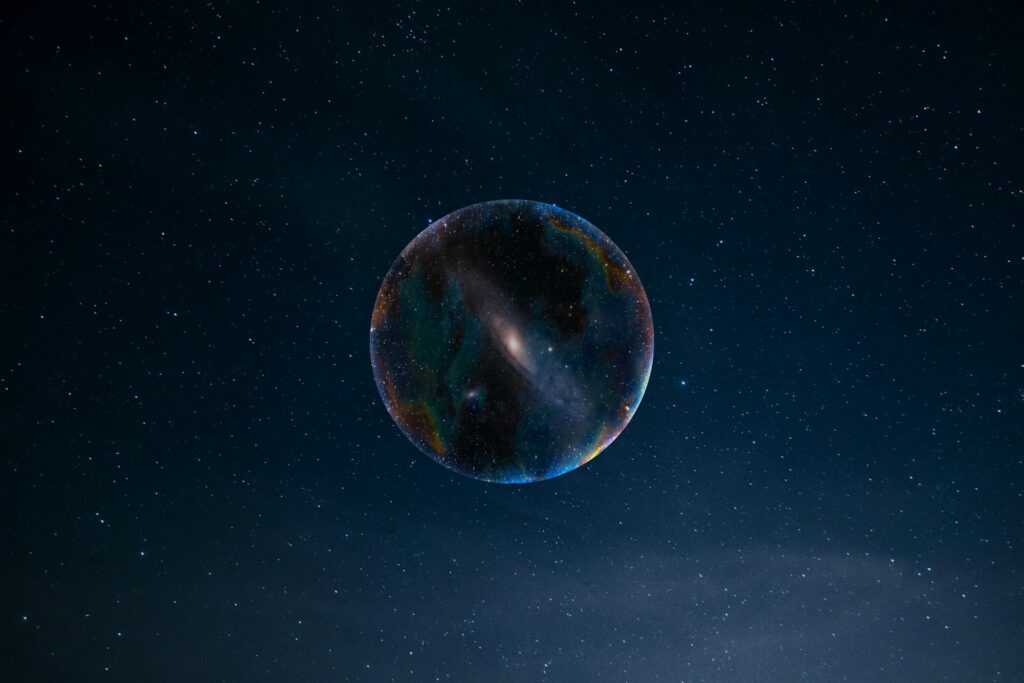
The history of science fiction
There are early works of literature that contain science fiction elements, like The Epic of Gilgamesh, written between c. 2100–1200 BCE, which includes discussions of advanced techniques in irrigation, mathematics, medicine, and astrology. Another example is True History, a novella written in the second century CE by Lucian of Samosata, which is the earliest known work of fiction to cover topics like space travel, alien life, and interplanetary warfare. But while they contain elements we now recognise as science fiction concepts, neither are true examples of the genre.
The true pioneer of science fiction is Mary Shelley, with her novels Frankenstein and The Last Man. With the popularisation of the novel as a literary form, her works were the first that contained all the hallmarks that would come to be associated with science fiction as a genre. She was quickly followed by writers like Jules Verne and H.G. Wells, who really honed in on the ideas of exploration and future technologies.
The rise of pulp magazines like Amazing Stories in the early 20th century popularised science fiction for the masses. This led almost directly to the Golden Age of Science Fiction (1930s-1950s), which gave rise to sci-fi greats like Isaac Asimov, Robert A. Heinlein, and Arthur C. Clarke, who still influence the genre today. The emergence of the New Wave in the 1960s and 1970s saw the emergence of deeply philosophical science fiction coming from authors like Ursula K. Le Guin, Philip K. Dick, and Samuel R. Delany, while the space race and the Cold War had a profound impact on the genre themes explored.
In the 1980s, science fiction would enter its cyberpunk subgenre phase, with writers like William Gibson leading the charge. Popular contemporary trends in modern science fiction now tend toward climate fiction, Afrofuturism, and cross-genre blends to explore more diverse voices and ideas.
Key characteristics of science fiction
The key characteristics of modern science fiction trend toward speculation of the future or alternate histories. They often have a scientific or technological focus while exploring social and philosophical ideas through that lens. There is a lot of overlap between science fiction and fantasy, especially in the exploration of alternate worlds.
Any sufficiently advanced technology is indistinguishable from magic.
Arthur C. Clarke
Many great works of science fiction will explore “what if” questions, like what if aliens landed on earth? What if technology becomes more advanced than humanity? They will also look at their worlds through a social lens, either representing extreme visions of society in the form of a utopia or dystopia, or exploring alternate or parallel visions of our own world.
Common tropes and themes in science fiction
Tropes
Some of the more common science fiction genre tropes include:
- Time travel: Time travel covers a lot of story types. While in its essential form, it is a trope about characters moving backwards or forward in time, it often has interesting narrative applications. It can explore the consequences of time travel through the alteration of history and deep dive into the science of time travel in relation to time loops or paradoxes. It can raise questions about causality, the butterfly effect, and the nature of time itself.
- Alien encounters: Whether it be through first contact or invasion, alien encounters is a trope all about humanity meeting extraterrestrial life forms. Stories that use this trope often explore themes of communication, facing the unknown, or the nature of life itself. A key characteristic of this trope is that it often reflects the fears, hopes, and curiosities of the time in which it is written. It can delve into anything from a fear of technology, xenophobia, cultural exchange, colonialism, co-existence, and conflict.
- Artificial intelligence: Artificial intelligence (AI) is a trope that explores machines or software that can think, learn, and potentially surpass human intelligence. It often explores the ethical, moral, and existential questions surrounding the creation of intelligent machines, the meeting point between technology and biology, the nature of sentience, autonomy, and the consequences of integration and reliance on technology.
- Space exploration: Space exploration is a trope that spans lots of science fiction subgenres. It’s all about journeying beyond our planet and venturing into the vastness of space. The purpose of travel can be anything from colonisation to exploration, and can be peaceful or violent. It is a trope that involves advanced spacecraft and the challenges of surviving in space. It can include alien encounters, but is also often used to explore the effects of isolation on society and the human psyche. Writers can use this trope to reflect on anything from the human spirit of adventure, intellectual curiosity, and the dangers of the unknown.
- Dystopian/Utopian societies: Dystopian societies depict a future where things have gone terribly wrong, often showcasing oppressive governments, environmental disasters, or societal decay. Utopian societies lie on the other end of that spectrum, depicting idealised versions of the future where humanity lives in harmony. Both the Utopia and Dystopia tropes allow writers to explore the consequences of our social trajectories, bringing current trends and ideas to an inevitable conclusion. They can serve as cautionary tales or visions of hope.
- Alternate/Parallel universes: This trope involves the existence of worlds that are similar to but distinct from our own. They can often have different histories, laws of physics, or societies but can just as often be mirror images with only very small changes to our current reality. Using this trope, characters might travel between universes to tell stories of exploration, investigate “what if” scenarios, and delve into the nature of reality. Alternate universes allow for familiar characters and settings to be reimagined in interesting new ways.
- Multiverses: The multiverse trope expands on parallel and alternate universes with the idea that there are infinite universes that exist simultaneously, each with its own reality. Characters might navigate between these universes, encountering different versions of themselves or entirely different worlds. This can also tie into the time travel trope, as parallel/multiple timelines can serve a similar narrative function. This trope often explores the implications of infinite possibilities, the nature of choice, and the idea that every possible outcome of every decision might exist somewhere.
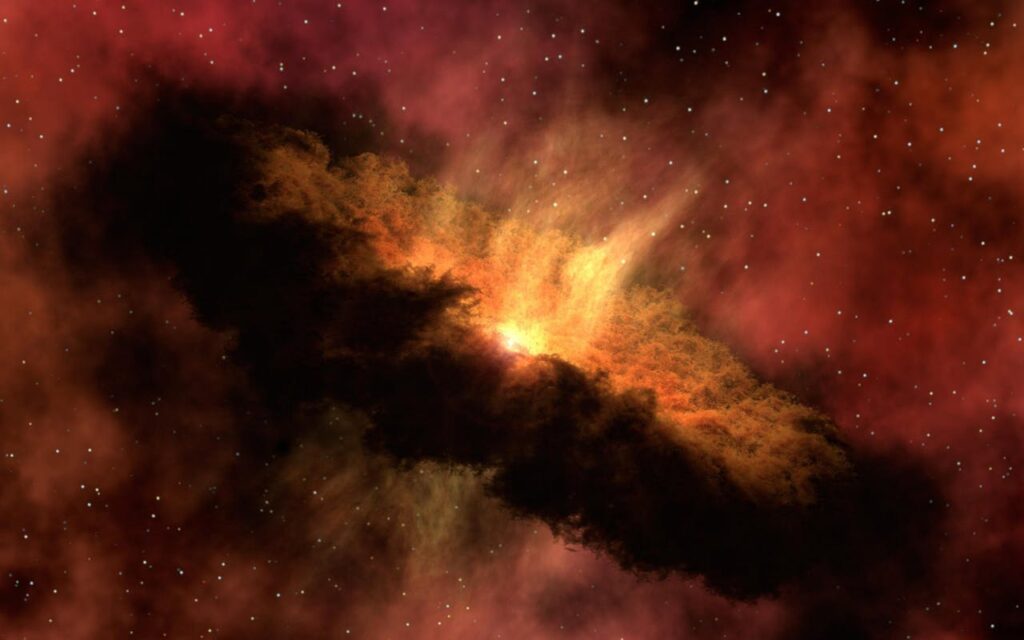
Themes
Science fiction explores complex, real-world themes in a way that is both familiar and yet distanced from us. This gives writers free rein to explore complexity without the constraints of the current status quo, with the space to ask fundamental questions about our nature, our choices, and our future. Popular themes explored in science fiction include:
- Human nature and identity: At its heart, this theme explores the very essence of what it means to be human. Writers who focus on this theme will look at ideas like personal identity, consciousness, the self, and the development of society. It also explores ideas of change, both on a personal and social level. Big questions tackled by this theme might include: What does it mean to be human? How does memory, emotion, or biology shape identity? What does it mean to be an individual who is part of a whole?
- Technology and its consequences: This theme explores the impact of rapidly advancing technology on both individuals and society, and even on a wider scale, like the world or the cosmos. While technology can lead to amazing innovation, it can also have unintended consequences. Big questions tackled by this theme might include: How do new technologies — like AI, robotics, genetic engineering, or space travel — change our way of life? Can technology progress too far? How can technology impact relationships, privacy, and personal freedoms?
- Environmentalism: This theme explores and reflects real-world worries about climate change, environmental degradation, and the collapse of ecosystems. It imagines future scenarios in which our current trajectories have had a negative or positive impact, often slotting neatly in the Utopia/Dystopia tropes. It often serves a warning about current ways of living by exploring the consequences of present-day environmental issues. Big questions tackled by this theme might include: What are the long-term environmental consequences of present-day action/inaction? What does the future look like after environmental collapse? How closely tied is humanity to its environment?
- Political and social commentary: As part of the speculative fiction umbrella, science fiction often explores themes relating to real-world political systems, social structures, and ideologies. This can be through any trope, from alternate universes/timelines to future projections. It’s a theme that often critiques existing power dynamics, explores the nature of corruption and inequality, and questions accepted social norms through the roles of government, corporations, and individuals. Big questions tackled by this theme might include: Can power ever be used justly? Are peace and cooperation possible, and what systems would allow us to achieve that? What are the consequences when personal freedoms are eroded?
- Ethics and morality: Science fiction often probes ethical dilemmas and moral questions arising from scientific progress, experimentation, and technological breakthroughs. This theme challenges characters — and by extension, readers — to think about the responsibility that comes with power and knowledge. Common science and technology for this theme include cloning, genetic manipulation, artificial intelligence, space colonisation, and looking at the dangers and moral consequences of pushing scientific boundaries too far. Big questions tackled by this theme might include: Should there be limits on scientific development? How do we weigh the potential benefits of scientific discovery against the risks? Does motivation absolve responsibility when the outcomes are unexpected?
Sub-genres of science fiction
Science fiction has various sub-genres, each with distinct focuses and characteristics:
- Hard sci-fi: Hard sci-fi focuses on scientific accuracy and technical detail. It is grounded in real-world science and mathematics, with a focus on plausibility within our current knowledge of physics, biology, mathematics, technology, and other scientific disciplines. It will often cover themes around advanced technology, space exploration, and the future of humanity. Notable authors in this subgenre include Arthur C. Clarke, Isaac Asimov, Larry Niven, Vernor Vinge, Andy Weir, Nancy Kress, and Cixin Liu.
- Soft sci-fi: Soft sci-fi focuses on social sciences. It looks at social and individual psychology, sociology, anthropology, and history rather than exploring more technical aspects. It analyses human relationships rather than relying on strict adherence to scientific accuracy, so it will cover the more character-driven themes of human nature, societal structures, politics, philosophy, and emotions. Notable authors in this subgenre include Ursula K. Le Guin, Ray Bradbury, Philip K. Dick, Octavia Butler, Aldous Huxley, and Samuel R. Delaney.
- Military science fiction: Just as the title suggests, military science fiction centres on warfare, military strategy, and the role of armed forces. It often explores advanced weaponry, tactics, and the human cost of conflict. Writers in this subgenre will often use features of past or current Earth conflicts, transposing them into an alternate setting, exploring themes of the ethics of war, leadership, military technology, and the impact of war on society and individuals. Notable authors in this subgenre include H. G. Wells, Robert A. Heinlein, Joe Haldeman, Yoon Ha Lee, Elizabeth Moon, James S. A. Corey, and John Scalzi.
- Space opera: Space operas are epic, large-scale adventures set in space, often involving interstellar travel, interstellar war, political conflicts, alien species, and space battles. It tends to be more fantastical, with less concern for scientific accuracy covering themes of heroic adventures, romance, the rise and fall of empires, and good versus evil. It lends itself very well to multi-genre application. Notable authors in this subgenre include Frank Herbert, Lois McMaster Bujold, Peter F. Hamilton, Alastair Reynolds, Iain M. Banks, Ann Leckie, James S. A. Corey, and Dan Simmons.
- Cyberpunk: Cyberpunk is a sub-genre that explores high-tech and “low-life” scenarios, typically set in dystopian near-futures where advanced technology coexists with social decay exploring the science of cybernetics, artificial intelligence, and the politics of corporate control. Themes of class struggle, cybernetics, the human-machine interface, corporate power, and virtual reality are staples of Cyberpunk, often told with a noir feel. Notable authors in this subgenre include William Gibson, Neal Stephenson, Bruce Sterling, Pat Cadigan, Philip K. Dick, and Richard K. Morgan.
- Post-apocalyptic: Post-apocalyptic science fiction works suit themselves well for the Utopia/Dystopia tropes. It is set in worlds that have been devastated by global catastrophes (e.g., nuclear war, pandemic, climate disaster). It explores ideas around the survival of humanity and how societies are rebuilt (or fail to rebuild) after complete collapse using themes like survival, the collapse of civilization, resilience, environmental disaster, and the fragility of society. Notable authors in this subgenre include Cormac McCarthy, Margaret Atwood, Richard Matheson, George R. Stewart, John Wyndham, and Emily St. John Mandel.
- Alternate history: Alternate history is a subgenre that explores “what if” scenarios. It often re-imagines historical events with different outcomes. The three fundamental elements required for this subgenre are (1) A point of divergence from the historical record; (2) A change that alters known history; and (3) An examination of how that altered history plays out. It explores themes of historical speculation, cause and effect, societal development, and divergent timelines. Notable authors in this subgenre include Philip K. Dick, Harry Turtledove, Michael Chabon, C. J. Sansom, and Robert Harris.

How to write science fiction
Science fiction is a genre that relies heavily on research and world building and a love for the genre. It’s not something to be tackled lightly, as there are a lot of moving parts that go into making both an interesting and believable work of science fiction. Here are our tips!
Read lots
Familiarity with the genre is an essential part of writing great science fiction. But it’s not just the genre itself; it’s also the real-world concepts that inform it. When it comes to generating ideas, these will often come from the science, politics, or history that surrounds you. Staying informed about current scientific developments, historical research, and emerging technologies lets you keep your finger on the pulse of what makes a good story and will grab a reader’s attention.
World building
Creating a believable and immersive world is one of the most essential components of science fiction. You must establish the rules and limitations of your universe, develop the history and culture, and consider how technology does or doesn’t fit into the everyday life of your setting. Ask yourself “what if” questions to work through potential scenarios and explore the consequences of scientific or technological advancements, and really get to the bottom of how society might develop in response to change or upheaval. The key element is to create a consistent internal logic for your imagined world.
Plot development
Like with any work of fiction, you must start with a compelling hook that introduces the theme you want to explore. Within that theme, you must outline a clear conflict or problem that will be the backbone of your narrative. Your theme will be heavily influenced the by subgenre(s) you choose for your story, so make sure that you choose the right vehicle that will best convey your concept.
Develop well-rounded characters
The characters are the way your readers will experience your world, so giving them distinct personalities and motivations, and having them actively engage with your story’s theme is essential. You should explore how they interact with and are affected by the sci-fi elements of your world, and use them as vehicles to share knowledge and information. Especially with high-concept sci-fi, your readers will experience new and exciting things through their eyes.
Balance science and fiction
One of the challenges in writing science fiction is getting the balance right between scientific accuracy and interesting storytelling. While you should research the scientific concepts you plan to include in your story, your readers don’t need to know the minutiae. It’s up to you to decide how closely you want to adhere to scientific accuracy or how detailed you want to be in the more techy elements. Scientific principles should serve as the foundation for your speculative elements, but depending on your subgenre, the most important thing is to make sure you’re consistent in the rules that drive your world.
Incorporate scientific concepts
When introducing complex scientific ideas, it’s important that they’re accessible to your readers. To achieve this, break down difficult concepts into digestible pieces. Real-world analogies and comparisons are often good ways to help readers understand unfamiliar ideas, or alternatively, have your characters learn them alongside the readers. Integrating complicated concepts naturally into a dialogue or the thoughts of your characters is another good way to keep difficult-to-understand ideas manageable, but do avoid too much jargon or concept-specific terminology without making sure that the reader has enough background to understand it.
Common pitfalls to avoid
Info dumping is the biggest danger in any work of science fiction and can take a reader right out of your story. World building should be introduced gradually throughout the narrative rather than all at once. Trust your readers to put the pieces together.
Another common pitfall is letting your sci-fi elements overshadow character growth. This is especially likely to happen if you’ve done a lot of research and are excited to share it. The science fiction elements you include should enhance your world and your characters, so make sure what you include balances well with their arcs and fits their personalities, conflicts, and struggles.
Scientific plausibility is the backbone of science fiction, so it’s also important to keep that front and centre of your mind. Science fiction and fantasy both fall under the speculative fiction umbrella and have a lot of overlap, but it’s the scientific plausibility that puts something firmly in the camp of science fiction, rather than fantasy. While science fiction does allow for creative liberties, maintaining some level of plausibility is important.
Recommended science fiction books
Note: All purchase links in this post are affiliate links through BookShop.org, and Novlr may earn a small commission – every purchase supports independent bookstores.




